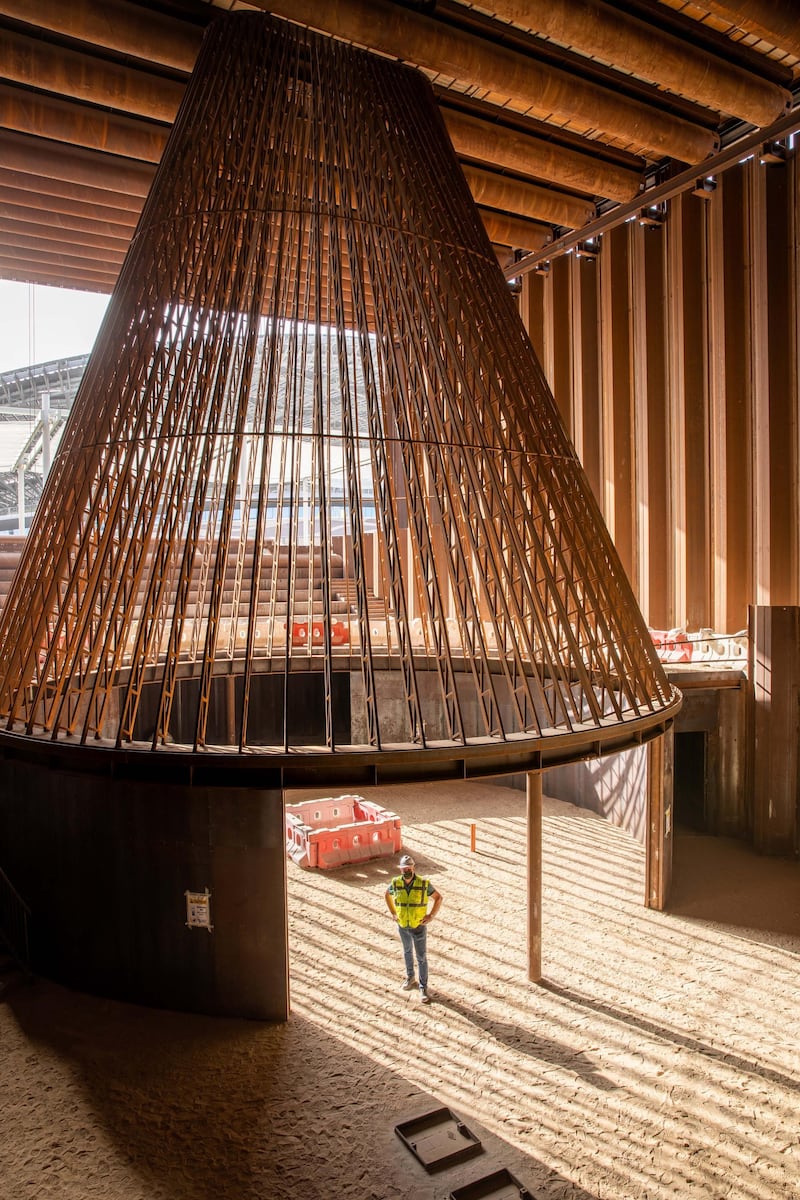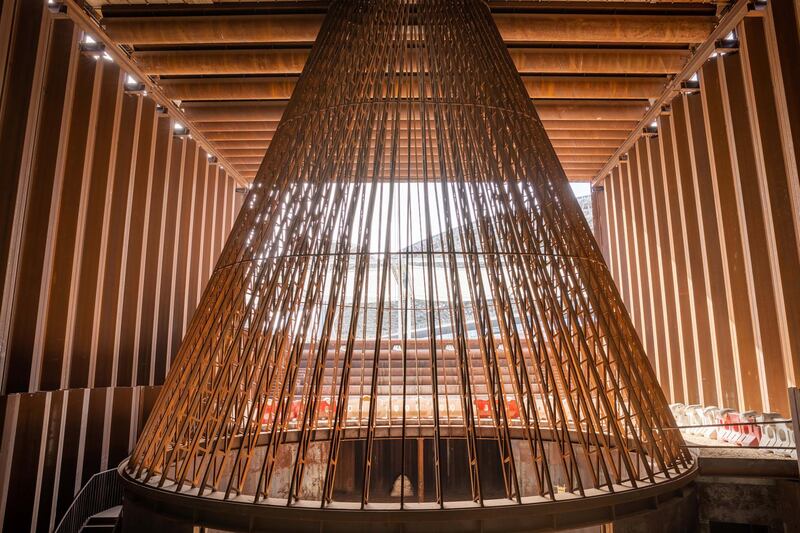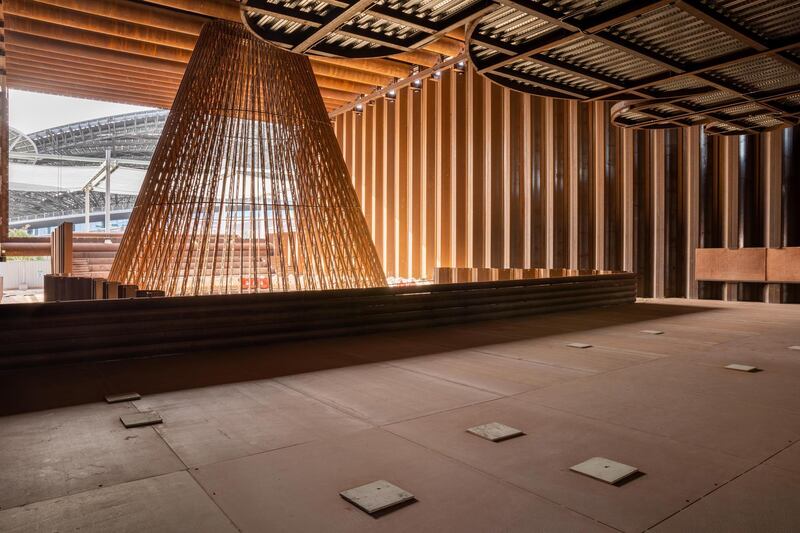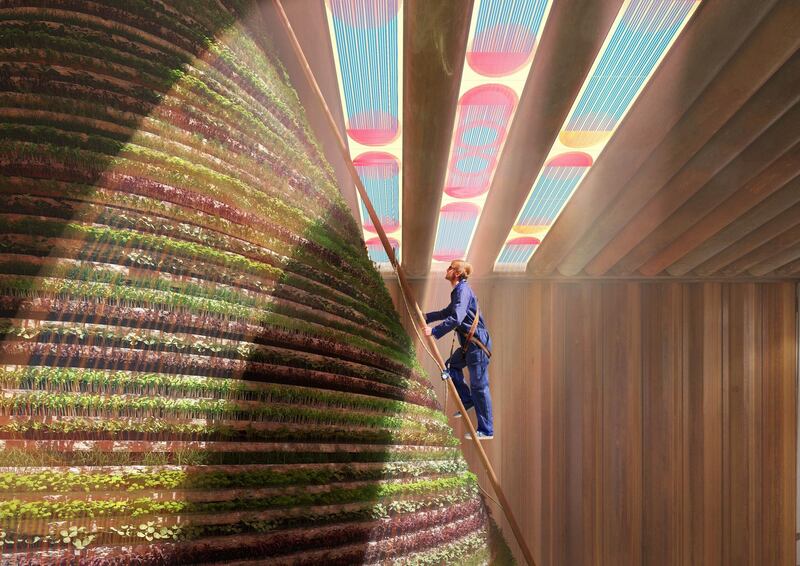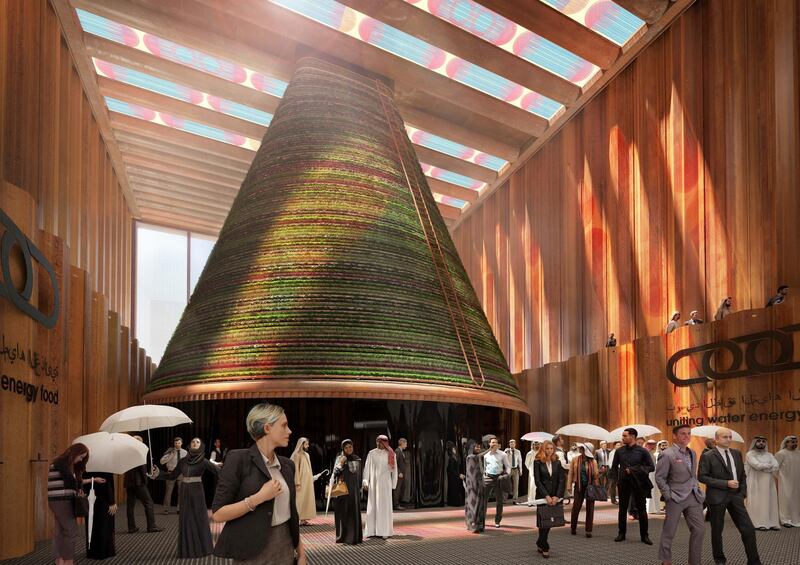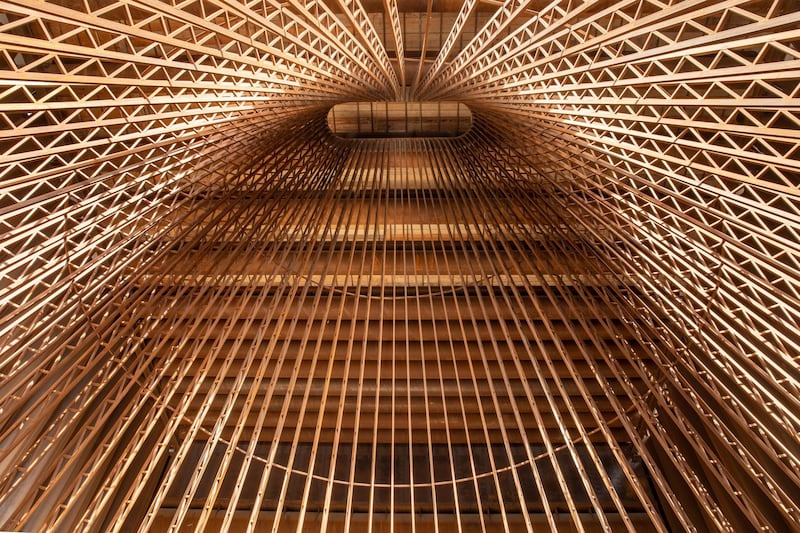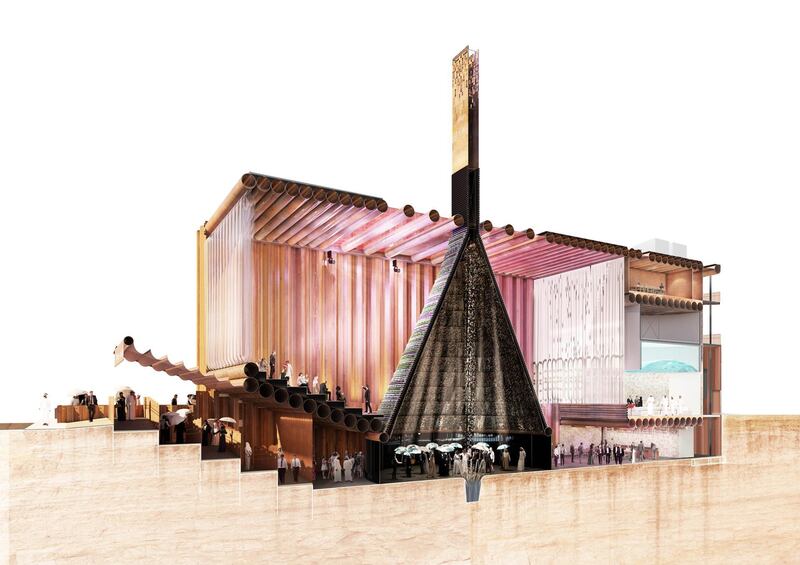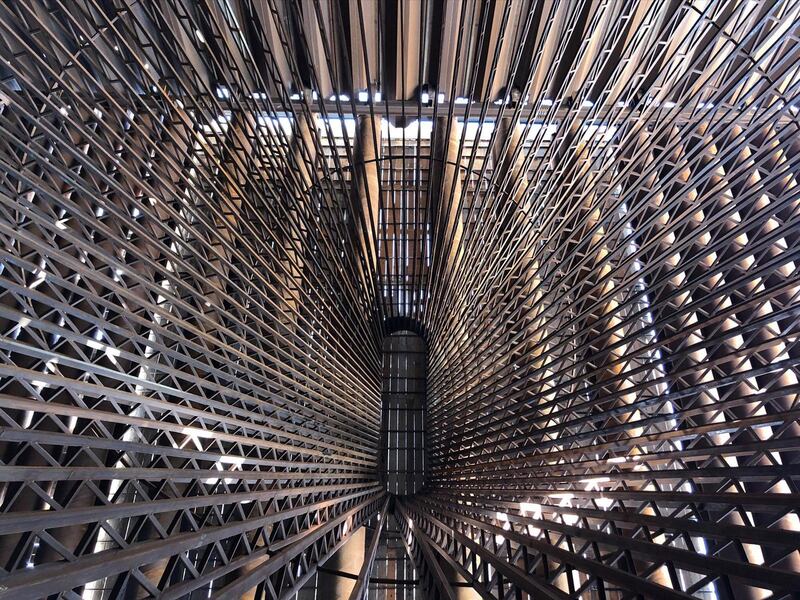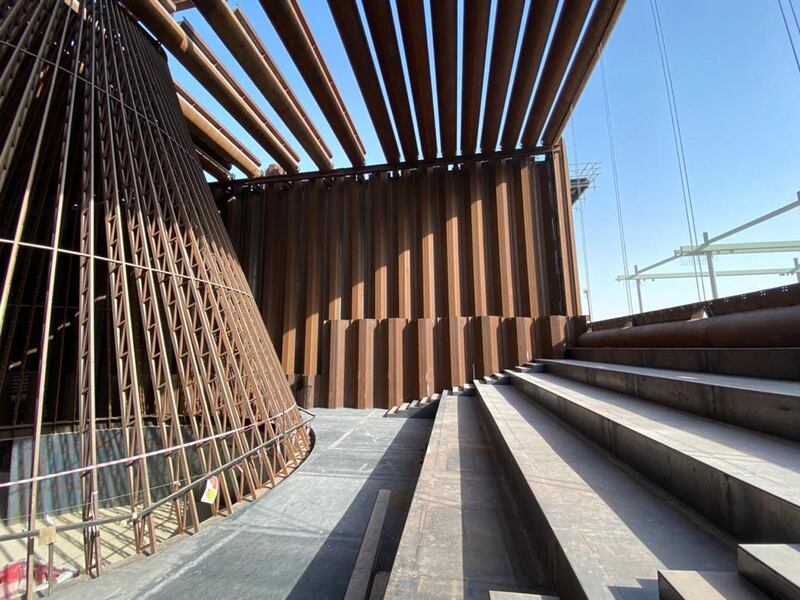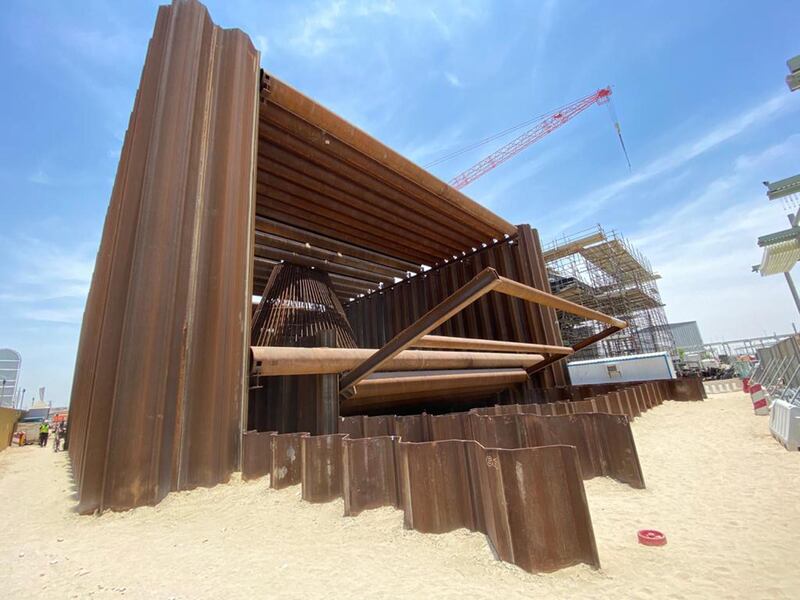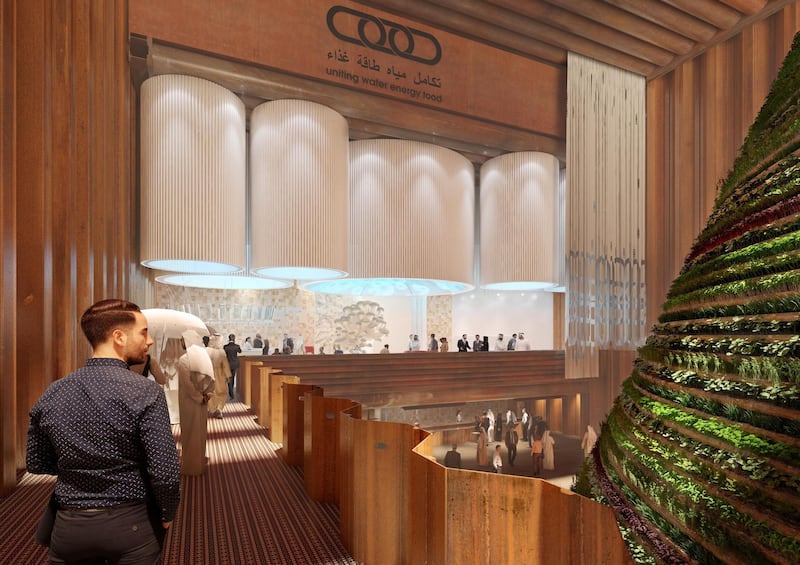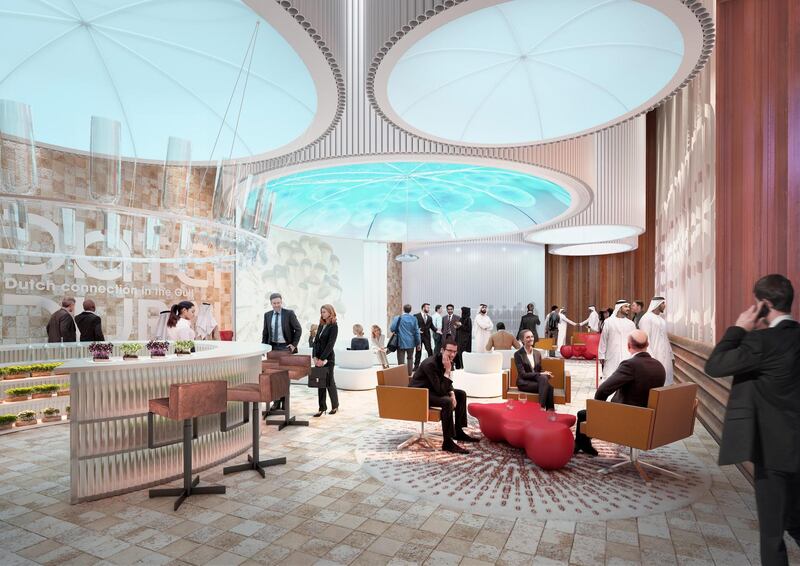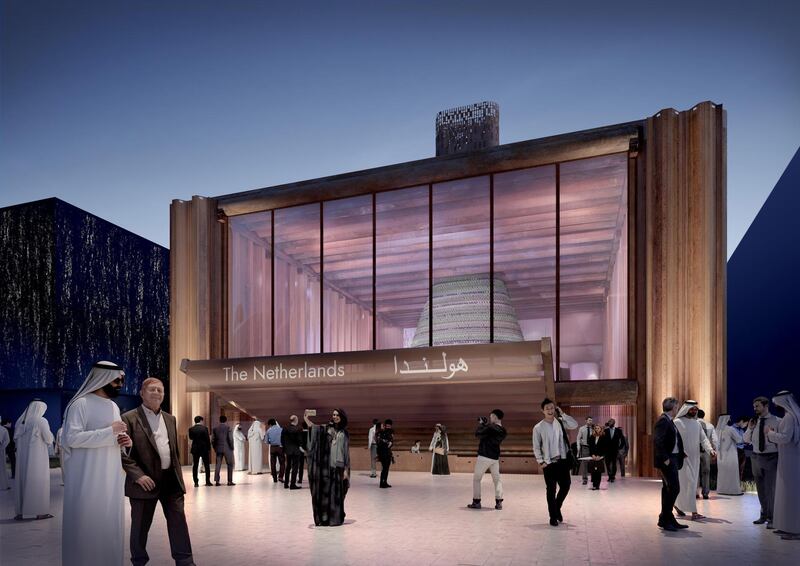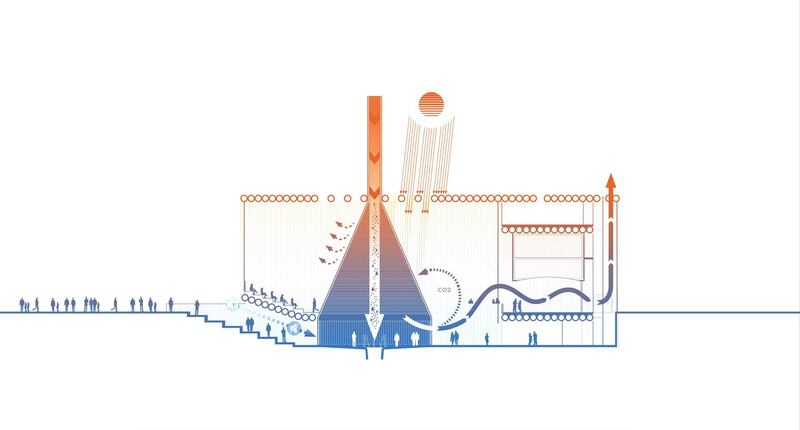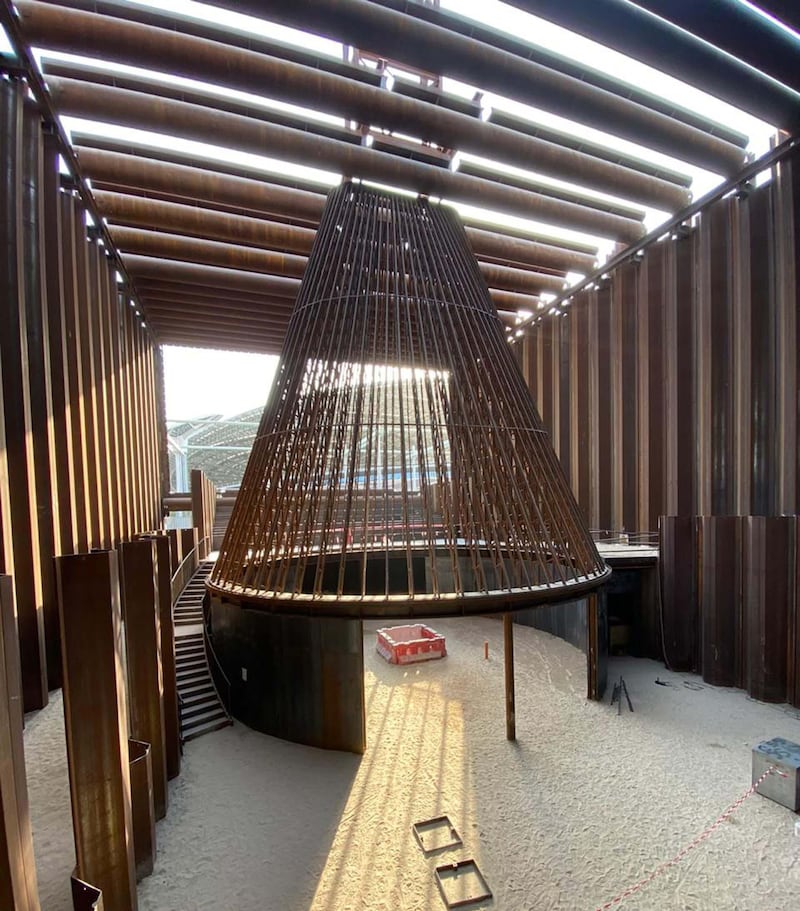Oyster mushrooms have begun sprouting inside a giant vertical farm at the Netherlands pavilion at Expo 2020 Dubai.
Its centrepiece of the structure is a green cone upon which more than 9,000 plants and herbs thrive.
The plan is to host a green zone that is more than a building, and display real, sustainable solutions in action.
Pavilion organisers have created a biotope, or a miniature world in which the climate is controlled naturally, to nurture plants.
“The oyster mushrooms are organically grown within the mushroom nursery at our pavilion and they will be seen inside the 18-metre massive green food cone,” Carel Richter, newly appointed Consul General of the Netherlands in UAE and commissioner general of the country’s pavilion, told The National.
“On the exterior of the cone, there are approximately 9,300 edible plants harvested using Dutch technologies. These plants include tomato, basil, mint and asparagus.”
When Expo opens on October 1, visitors will be able to enter the darkened interior of the green cone to see how the mushrooms are grown.
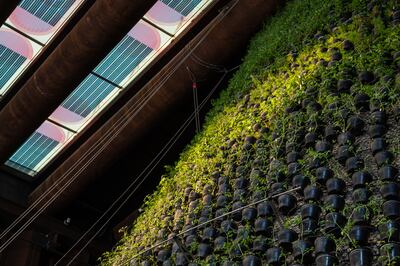
The fungi are an integral part of the circular system, emitting carbon dioxide that is absorbed by the plants on the cone’s exterior.
A spectacular stained glass solar cell skylight has also been installed.
The floor and wall panels in the lounge are made from mycelium, a biodegradable fungus-based substance, to show how mushrooms can be used to make building material.
An 44-metre curtain separates the business lounge area from the visitors’ section of the pavilion, enabling events to be hosted in privacy.
Its bioplastic textile fibre has been designed using products including corn, sugar cane and cassava, a root vegetable.
A solar-powered rain shower will capture moisture from the air and harvest hundreds of litres of water daily to irrigate the greenery.
Water in the “rainmaker” will be cooled with solar energy to reduce the temperature inside.
The Netherlands aims to depict in real terms how to address global challenges such as water scarcity, food security and the rising demand for energy.
“The visitor journey in our pavilion is directly linked to our theme ‘Uniting water, energy and food’,” Mr Richter said.
“Guests will be diving into a miniature world where they will be joining the conversation about how we can connect minds to secure water, energy and food.”
The pavilion was built largely using local resources. Regionally produced steel was used in the construction to reduce the carbon footprint.
Mr Richter said each segment of the pavilion carried a thought-provoking message about conserving scarce natural resources.
“Our team has been working hard immensely to bring this project into a reality,” he said.
“They are all very excited and looking forward to this mega once-in-a-lifetime event.”
Expo 2020 Dubai opens on October 1 and will run for six months.
